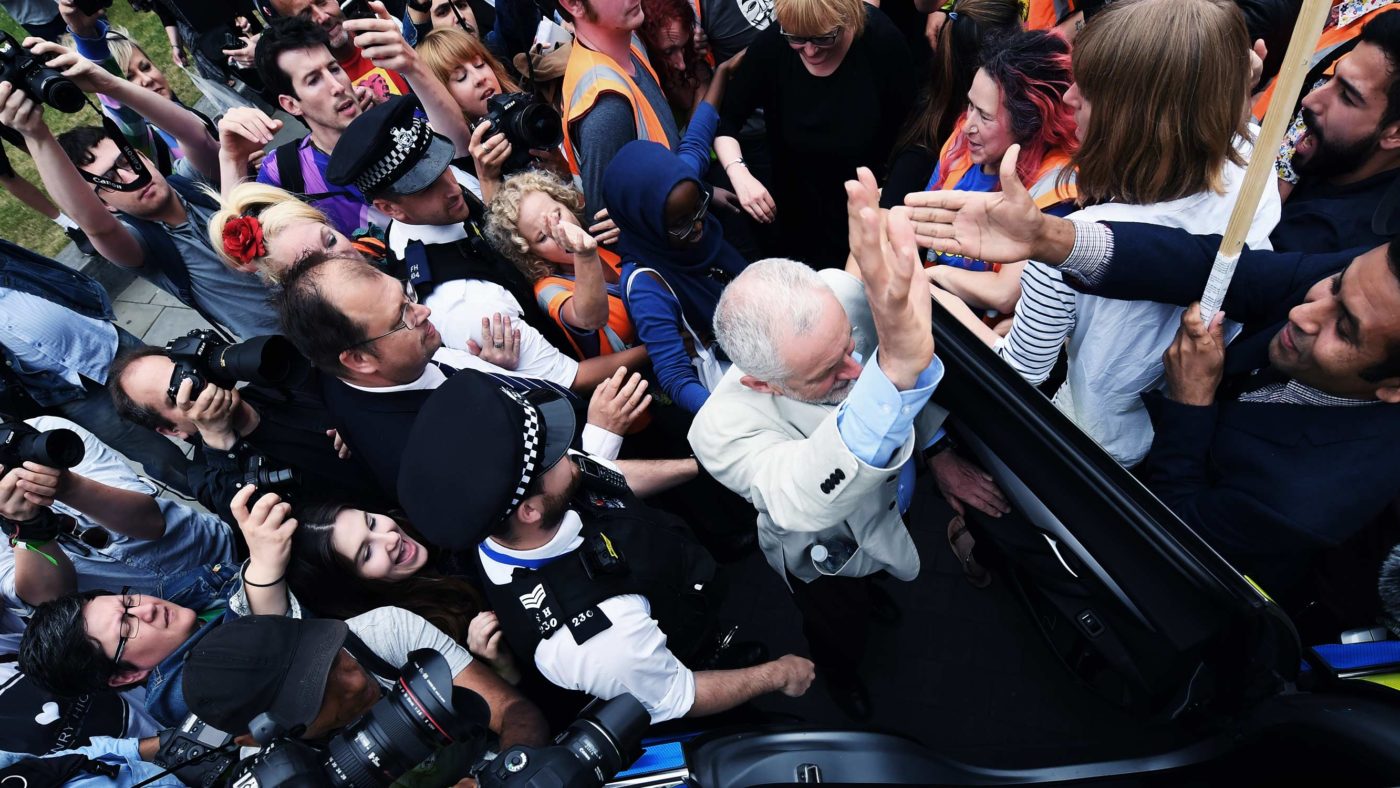It was inevitable that working out where exactly the Conservative election campaign went wrong would become Westminster’s unofficial summer homework. And so it was no surprise to see Nick Timothy, the Prime Minister’s now beardless former “Rasputin”, break his post-election silence with an early submission.
Timothy has argued that the party should not return to the “modern consensus of pure social and economic liberalism”. One expects sympathy will be in short supply. After all, Conservative complaints about the election are hardly limited to the Prime Minister’s dabbles in conservative statism. Timothy’s Burkean missives about “selfish individualism” are all very well, but at some point they should have been converted into attractive, doorstep-friendly, retail policies. Other than the – to put it charitably – “controversial” social care policy and an energy price cap robbed from Ed Miliband, the Conservative manifesto singularly failed to achieve this. That one, surely, is on Mr. Timothy.
Still, there is a rationale to his contention that strikes to the heart of the debate about the Conservative Party and its future. During the early years of New Labour ,Tony Blair was fond of reminding people how the 1980s Labour Party persuaded itself people “voted for Margaret Thatcher because they wanted a really left-wing Labour Party”.
A similarly flawed argument now beguiles the British Right. Yes, if you have a contentious economic position, be that austerity or a full-throated defence of free markets, then it is undoubtedly better to contest the battle of ideas than ignore it altogether. Philip Hammond is right about that. But the idea 40 per cent of the British people voted for Jeremy Corbyn because the Conservatives were not assertive enough about right-wing economic orthodoxy must stretch, even in these consensus challenging times, the limits of political credibility.
In fact, perhaps unsurprisingly, a misdiagnosis of the Corbyn moment turns out to be exactly where the flaws of both Timothy and his detractors converge. Timothy suggests that Corbyn was “underestimated”, but that is not quite right; the British people, as polling confirms, remain deeply suspicious of the Labour leader. What has been underestimated however, is the appeal of Corbynism – or at least the economic malcontent it feeds upon.
This is what the Prime Minister seemed to understand so well before the election campaign. That Britain had tired of a consensus that tolerated widespread economic injustice in the name, to slip into Timothy’s vernacular, of “untrammelled free markets”. Brexit was a “change” election, as, in hindsight, was last June’s. Timothy absolutely got that bit right. But that only makes his failure to address this clamour, to the point where a left-wing-by-numbers Labour manifesto genuinely seemed a more practical response, even more mystifying.
Nevertheless, his colleagues would do well to heed his latest advice and recalibrate their approach to Corbyn. At the moment, the Conservative strategy seems as fixated with Corbyn the personality as it was during the election itself. On issues like student debt it seeks to portray him as untrustworthy, on Venezuela as morally bankrupt. But whatever the substantive merits of these two attacks, as a strategy it is destined to fail. Because whilst Corbyn’s movement may often resemble – and in many cases is – something of a personality cult, the broader appeal of Corbynism is not driven by personality.
This cannot be understated. The election campaign has not magically transformed Corbyn into a charismatic and popular Prime Minister in waiting. Far from being a socialist Pied Piper, he secured 40 per cent of the country in spite of his personality, not because of it.
Rather, Corbyn more accurately resembles a surfer atop an angry wave every bit as great as the one painted by Hokusai that currently graces the British Museum. It is a wave fuelled by productivity growth weaker than at any time since the 19th century. By the overall share of wealth creation accruing to workers continuing to decline. By home ownership levels, plummeting thanks to an iniquitous asset price boom. By median wages that have been stagnant for nearly 15 years. And yes, by the intergenerational unfairness that could see fully two generations of young people growing up poorer than their parents.
These problems cannot be healed by (or, conversely, blithely dismissed as) a rejection of austerity – they go far deeper than that. And it is certainly fair to argue that the rhetoric of Timothy’s manifesto went too far – the market can deliver socially valuable outcomes as well as economic dynamism. But on a whole host of issues he is surely right to argue that the politically astute response must take modern Conservatism out of its “comfort zone”. For example, would it really offend traditional conservative sensibilities that much to combine market-based reform of our planning laws with a very visible, state-sponsored affordable housing programme? After all, in politics social justice must not only be done, but must also be seen to be done.
Discrediting Corbyn will not defeat Corbynism. The Government must respond to the wave not the surfer. For, if left unaddressed, that wave will soon sweep this Government away. With or without Jeremy Corbyn.


